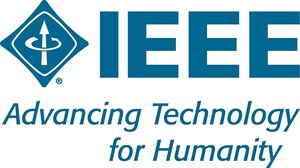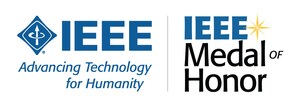NEW YORK, Feb. 28, 2013 /PRNewswire/-- IEEE, the world's largest technical professional organization, today announced the results of a survey that gathered insights from more than 1,200 Facebook members, which includes engineers and technologists, on the future of the Internet of Things, the developing ecosystem of Internet-connected devices. The Internet of Things is quickly becoming a reality as manufacturers are increasingly linking "things", such as smartphones, appliances, cars and machines, to the Internet and to each other.
(Logo: http://photos.prnewswire.com/prnh/20120222/CG57428LOGO)
Work > Play
As the Internet of Things continues to develop and expand, much discussion revolves around the role that connected devices will play in users' everyday lives. IEEE's survey identified the ways in which consumers envision using connected devices. A surprising 65 percent of respondents said they are most interested in using connected devices to improve their work productivity, versus interest in managing their homes (14 percent), interest in improving their commutes (12 percent) or interest in improving their health (9 percent).
"As the Internet of Things evolves, we're discovering the varied ways connected devices can improve every aspect of our lives," said IEEE Senior Member Raul Colcher of Brazil. "People have always been most interested in technology that provides an immediate benefit, and connected devices can meet consumer need for instant, gratifying results that enhance quality of life. While one might imagine that improving the quality of ones' personal life would be most important, the overwhelming majority of survey respondents are most interested in using connected devices in the office. This statistic provides great insight about the types of devices that will be most well-received in the future."
What does it really mean?
In light of its rapid development, the Internet of Things faces growing pains and has yet to be clearly defined within the industry. Leaders hold differing opinions as to what qualifies a device as connected. According to IEEE's survey, unity may be closer than it seems. Nearly 70 percent of respondents feel connected devices can be defined as those that are either directly connected to the Internet, or indirectly connected by way of another component within the ecosystem; for example, a pulse counter wristband connected via Bluetooth to a cell phone. Only 30 percent of respondents feel that a device must be directly linked to the Internet to be considered connected; for example, a smart phone or laptop.
"The Internet of Things is still new and people have varying perceptions of what the network entails," said Roberto Saracco, an IEEE Senior Member and Director of the Italian Node of the EIT ICT LABS. "As people become more used to interacting with connected objects, for example using a cell phone to read a bar code, the way they define connected devices will become more clear and universal."
Beyond definitions, the Internet of Things faces pressing challenges that must be overcome to continue its path of growth.
Safe and sound
As devices and data become more intertwined, the opportunity for consequences grows, and people are acutely aware of these issues. Nearly 46 percent of respondents feel that privacy concerns is the biggest challenge facing widespread adaptation of connected devices, followed closely by concerns about data security (40 percent).
The Internet of Things is a particularly easy target for privacy and data breaches because of visible vulnerabilities in its early development. Consider a health device that monitors the vital signs of someone who is chronically ill. The monitor will gather data points, such as heart rate and blood sugar level, but rather than send the information directly to the doctor's office, the stats may first be routed to a local hub for processing and temporary storage. The more transfer points along the path of travel, the more opportunity for data to be stolen or compromised.
"Overcoming the Internet of Things' privacy and security issues will be a significant challenge for the industry," Saracco said. "However, worthwhile innovation does not come without obstacles. I believe that the great minds of technology and engineering can collaborate to find a solution that will alleviate some of these development concerns."
For more information about IEEE's latest research on connected devices and the Internet of Things, please visit: http://ieeexplore.ieee.org/search/searchresult.jsp?newsearch=true&queryText=internet+of+things&x=0&y=0
About IEEE
IEEE is the world's largest technical professional organization dedicated to advancing technology for the benefit of humanity. Through its highly cited publications, conferences, technology standards, and professional and educational activities, IEEE is the trusted voice on a wide variety of areas ranging from aerospace systems, computers and telecommunications to biomedical engineering, electric power and consumer electronics. Learn more at http://www.ieee.org.
SOURCE IEEE
WANT YOUR COMPANY'S NEWS FEATURED ON PRNEWSWIRE.COM?
Newsrooms &
Influencers
Digital Media
Outlets
Journalists
Opted In






Share this article